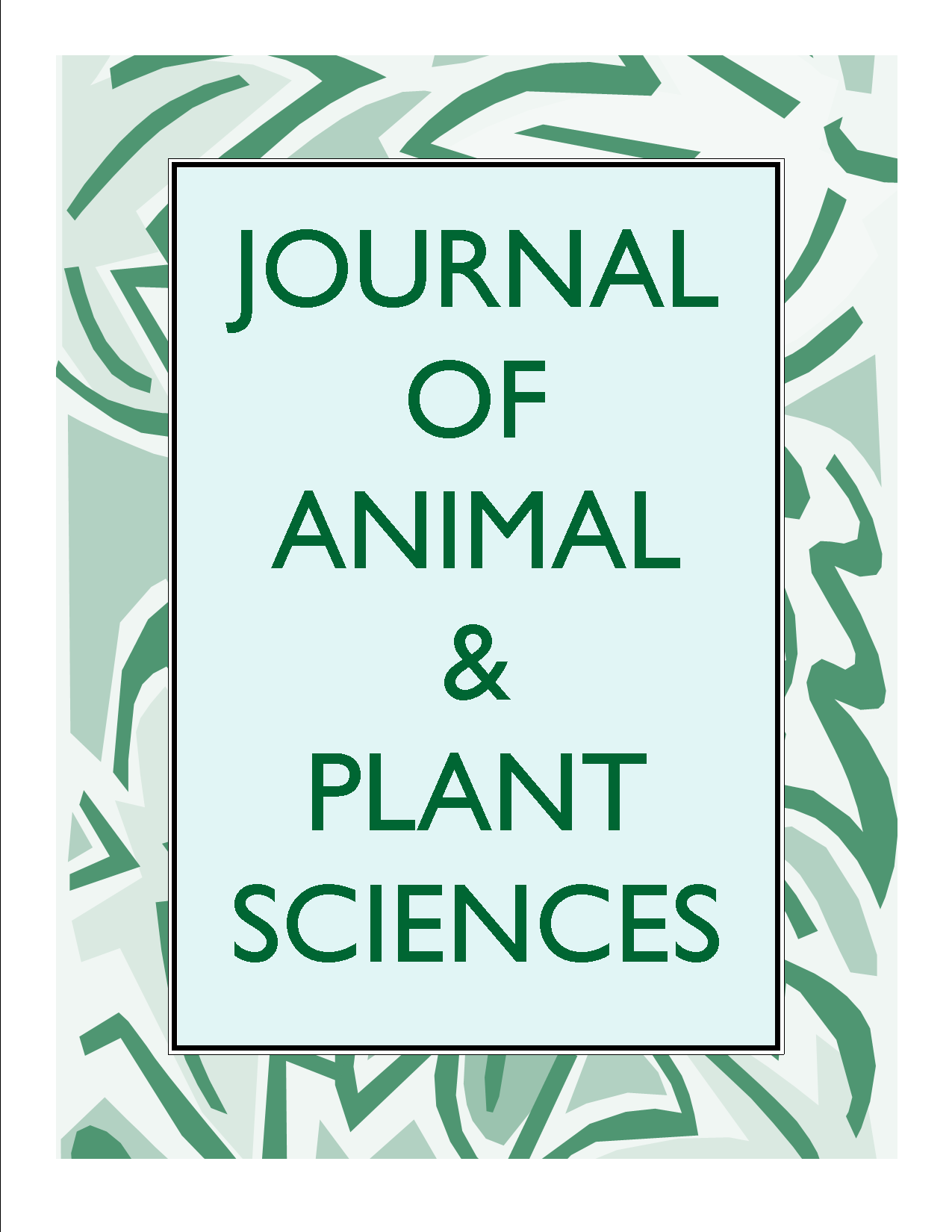Journal of Animal and Plant Sciences
J. Anim. Plant Sci. [ISSN 2071 - 7024]
Volume 18(1): 2647 - 2658. Published May, 2013.
Étude ethnobotanique des plantes utilisées dans le traitement du diabète chez les femmes enceintes à Cotonou et Abomey-Calavi (Bénin)
Fah L1, Klotoé JR1, Dougnon V1.2, Koudokpon H1, Fanou VBA1, Dandjesso C1, Loko F1
1Laboratory of Research in Applied Biology, Polytechnic School of
Abomey-Calavi, University of Abomey-Calavi, 01 BP 2009 Cotonou, Benin.
2Laboratory of Toxicology and Environmental Health, Interfaculty Center
of Formation and Research in Environment for the Sustainable
Development, University of Abomey-Calavi (UAC), 01 BP 1463 Cotonou,
Benin.
*Auteur Correspondant: Dougnon Tamègnon Victorien Tel. 00 229 97 73 64 46/ email. victorien88@hotmail.com
Mots-clés : Diabète- grossesse- plantes médicinales- Bénin
Keywords: Diabetes- pregnancy- herbal- Benin
1 RESUME
La présente étude a permis d’identifier les plantes à propriétés
antidiabétiques vendues aux femmes enceintes à Cotonou et
Abomey-Calavi. Il est revenu, de ces enquêtes, que les espèces les plus
vendues par les herboristes pour le traitement du diabète chez les
femmes enceintes sont : Catharanthus roseus L., Lippia multiflora
Moldenke et Phyllanthus amarus Sch. et Th. Les recettes sont composées
de plantes uniques (14,29%) ou d’association de deux à onze plantes
(85,71%). Leurs coûts accessibles varient de 200 à 1000 Francs CFA. Les
parties de plantes les plus utilisées sont la tige feuillée, la tige,
la plante entière, l’écorce et la racine et les recettes sont préparées
essentiellement par décoction et administrées exclusivement par voie
orale. Ces résultats constituent la base d’études ultérieures visant à
évaluer expérimentalement les potentialités de ces plantes. Cela
permettra de mettre à la disposition des parturientes, de substances
nouvelles d’origine endogène.
An ethnobotanical study of plants used in the treatment of diabetes in pregnant women in Cotonou and Abomey-Calavi (Benin)
ABSTRACT
In order to provide remedies based on African plants, this study
identified antidiabetic plants sold to pregnant women in Cotonou and
Abomey-Calavi. From these surveys, the species sold most by herbalists
for the treatment of diabetes in pregnant women were: Catharanthus
roseus L., Lippia multiflora Moldenke and Phyllanthus amarus Sch. et
Th. Revenues were made from unique plants (14.29%) or association from
two to eleven plants (85.71%). Costs which were cheap vary from 200 to
1000 CFA (from less than one to two USD). Parts of plants most commonly
used were the leaves, stem, whole plant, root and bark. The plants were
prepared mainly by decoction and administered only orally. These
results provide the basis for future studies to experimentally assess
the potential of these plants. This will made available new substances
from endogenous origin
FULL PAPER [PDF AVAILABLE HERE ]

